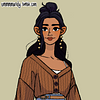Take a photo of a barcode or cover
Graphic: Emotional abuse, Misogyny, Pedophilia, Sexism, Suicidal thoughts, Toxic relationship, Violence, Death of parent, Gaslighting, Classism
Graphic: Sexual content, Grief
Moderate: Chronic illness, Drug use, Death of parent
Minor: Alcoholism, Animal cruelty, Misogyny, Vomit, Police brutality
Graphic: Grief, Death of parent
Moderate: Addiction, Alcoholism, Chronic illness, Suicidal thoughts
Minor: Cancer, Drug use, Misogyny, Sexism, Sexual content, Vomit, Medical content
Moderate: Chronic illness, Miscarriage, Misogyny, Panic attacks/disorders, Violence, Grief, Car accident, Death of parent
Graphic: Addiction, Alcoholism, Bullying, Cancer, Drug use, Misogyny, Sexism, Sexual content, Suicidal thoughts, Toxic relationship, Car accident, Alcohol
I will give Rooney her laurels for two things. The first being that I can understand why people are drawn to her books. She does a good job of fleshing out her character’s thoughts and really showing you their perfections of reality - especially the parts that make them aggravating. I can tell that she understands to some degree the capacity for human psychology, multiplicity of thought, and the miscommunication that happens in all human connections. The second thing is that Rooney does a good job of demonstrating how pervasive patriarchal stereotypes and commodification of women occur, in an overt, brash, incel-labeled manner, and the insidious, internalized, gaslit, and pervasive manners.
I don’t find these writing chops enough to overcome the multitude of sins Rooney commits in her writing. If this novel is anything to go by, they are so painfully male centric. While the two brothers are foils to each other in how they process grief (which is the red herring of this book by the way), they are foils to demonstrate how men poorly treat women. One brother, Ivan, self labels as an incel, but it’s because he didn’t know any better and was simply testing out world philosophies until he got older. One brother, Peter, is a self labeled human rights activists who champions women’s rights and yet puts himself in a deceitful love triangle that nearly ruins the lives of two good women as collateral.
The novel continually portrays women as the rehabilitation homes for these men and their dysfunctional lives and dysfunctional processing skills. These women are physically and emotionally battered from their own complex lives and yet they are the ones providing therapy, emotional processing, love, sex, and other needs meeting for these two pathetic men. These women could each have such rich lives but instead are reduced to flat, inanimate objects, used only to gratify each brother’s lust or need for emotional soothing. I nearly quit reading this book so many times after reading another onslaught of one of these women being vulnerable and these men preying on their emotional abilities to unwind their traumas.
Another element I absolutely detested was the implicit nodding Rooney was doing in making Ivan a neurodivergent character. First off, I think it quite frankly does nothing for the disability community to see a white, privileged, middle class , heterosexual man, who is a chess savant, be the representation of neurodivergence. Not only does it fall into so many unhelpful stereotypes, but Ivan’s atrocious behavior is often implicitly related to being a by product of his neurodivergence. I don’t think Rooney has the faintest clue of what she was trying to do with this character. I for one saw Ivan representing something else, not neurodivergence. He seems to me to be an example of a person with Borderline Personality Disorder. His character is someone who thinks purely in black and white, who does a lot of splitting (a rationalization in which things or a person are completely good or completely evil), and latches onto a romantic partner immediately and shows a disproportionate emotional attachment to them (sometimes called a “favorite person”). This is not all the issues that people with BPD face and it’s possible that Rooney wasn’t even trying to bring about this correlation. But to me, I see more character traits and thought patterns reminiscent of a personality disorder than neurodivergence in Ivan. And I could do the same analysis for Peter as well (especially with his penchant for violence, emotional gaslighting, and quick devolution into self harm).
In all, while this book has some interesting passages, there are some glaring issues, namely the way in which Rooney writes her women characters. Which is quite alarming to me considering the fact that her readership base is female. She’s basically glorifying a woman’s suffering and emotional abuse in a relationship all for the point of rehabilitating men who are too weak, too shallow, too selfish, and too self possessed? It’s as if you’re stargazing into a puddle. That’s all I could see in this book. And after reading it, I think I’ve seen all that I want to see about Rooney’s works. I prefer my authors and their works to decenter men fully.
Graphic: Alcoholism, Cancer, Death, Drug abuse, Drug use, Emotional abuse, Mental illness, Misogyny, Panic attacks/disorders, Self harm, Sexism, Sexual content, Suicidal thoughts, Terminal illness, Toxic relationship, Medical content, Grief, Suicide attempt, Death of parent, Gaslighting, Toxic friendship, Alcohol
Moderate: Ableism, Addiction, Adult/minor relationship, Homophobia, Infidelity, Blood
Graphic: Death of parent
Moderate: Misogyny, Suicidal thoughts
Minor: Vomit
Graphic: Sexual content, Suicidal thoughts, Toxic relationship, Death of parent, Toxic friendship
Moderate: Cancer, Chronic illness, Drug abuse, Misogyny, Terminal illness, Grief, Injury/Injury detail
Minor: Addiction, Alcoholism, Bullying, Violence, Pandemic/Epidemic
Loved the ending.
Graphic: Grief, Death of parent
Moderate: Suicidal thoughts, Alcohol
Minor: Misogyny, Violence
"The demands of other people do not dissolve; they only multiply. More and more complex, more difficult. Which is another way, she thinks, of saying: more life, more and more of life."
Graphic: Chronic illness, Grief, Death of parent
Moderate: Cancer, Mental illness, Sexual content, Suicidal thoughts, Terminal illness
Minor: Drug use, Misogyny, Vomit, Medical content, Alcohol, Classism






